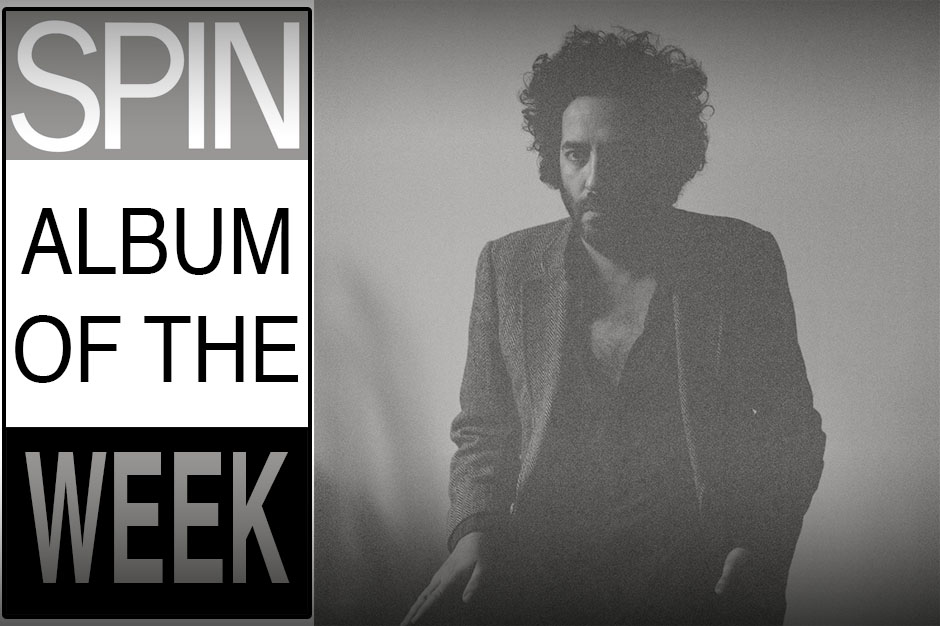Release Date: August 28, 2015
Label: Merge
There seems to be some misunderstanding about how difficult Dan Bejar is to understand. A decade-plus worth of press clippings label the man “obtuse,” which generally signals that the writers, including at least a few that I respect very much, don’t know what “obtuse” means (it’s an insult similar to “slow-witted” — remember The Shawshank Redemption). It’s just this fallibility of established authorities that decades of great music have existed to call into question. We can recognize that records have always been a business while also applauding the people who, like most of us, see a disconnect between market values and what’s really valuable, or a timeless risk in relying on what’s most precious to pay all the bills. Render unto Caesar…
The 41-year-old Vancouver native’s previous album using his cheeky Destroyer alias, 2011’s louche Europop odyssey Kaputt, was the project’s best-received to date, earning a nomination for Canada’s Polaris Prize. The record’s smoothly electronic, trumpet-polished sophistication arrived when such stuff was enjoying a moment, but Bejar’s growing popularity was no fluke. He had already enjoyed some measure of commercial success as the wordy eccentric who shows up for a few songs on every album by Canadian power-pop “supergroup” the New Pornographers. That widely beloved gig freed up Bejar to grow more mercurial on his Destroyer releases, but by 2006’s sumptuous Destroyer’s Rubies, it was the non-Pornos project drawing a career-length appreciation in The New York Times. If only the somewhat samey 2008 follow-up, Trouble in Dreams, had shone as brightly, Destroyer’s run through major festivals and late-night TV shows might have come a few years earlier.
Poison Season, Destroyer’s first album since Kaputt, is a triumph in trying to have it both ways. Sure, the lyrics ought to further cement Bejar’s reputation as oblique or abstruse. And anyone who might’ve latched onto Kaputt because “Chinatown” slotted well next to Washed Out or Bon Iver will be surprised by the follow-up’s leap toward a mix of bleak orchestral balladry and brassy ’70s-rock uplift. But worrying too much about understanding Bejar’s literal meaning has always missed the actual point of his music — sort of like how you don’t need Spanish fluency to enjoy Destroyer’s accurately titled 2013 EP, Five Spanish Songs. And on Poison Season, Bejar’s new trappings may suggest self-sabotage, but the tremendously assured songcraft says otherwise.
What’s here instead is one of the best albums from a restless artist who understands the ridiculousness of being a Restless Artist, but trusts that a consistent voice will make sense of his cross-genre meanderings. And Bejar’s voice, in every sense, is at its strongest here, cryptically echoing Monty Python on the mournful mini-suite “Bangkok,” and murmuring breathy warnings (“Careful, watch your step, in you go”) on the elliptically self-referential “Archer on the Beach.” This version of “Beach” is a rarity on Season, as a nod to Kaputt‘s silky groove despite being originally released as a noise-streaked 2010 collaboration with ambient guru Tim Hecker. The horn-blissed thrust of “Dream Lover” could woo another set of festival audiences; the modern-crooner melancholy of “Girl in a Sling” would leave them weeping beneath their phones-lifted-as-lighters. It’s a work of lush, all-too-human complexity from someone who’s made that one of his music’s few constant characteristics.
“You can fall in love with Times Square,” Bejar sings across three of Season‘s tracks. Technically, they’re just two songs: an orchestral ballad divvied up to bookend the album (“Times Square, Poisons Season 1” and “Times Square, Poison Season 2”), and a David Bowie-brazen centerpiece (“Times Square) that rivals “Dream Lover.” Either way, though, the idea of romantic potential within midtown Manhattan’s hyper-commercialized, tourist-trap gullet — related amid industry jargon and mentions of religious figures — clearly plays a prominent role on Poison Season. Twice, Bejar also offers, “You can follow a rose wherever it goes.” The trick of opening and closing an album with a two-part semi-title track, it’s worth noting, is one Destroyer has used before, on 2001’s Streethawk: A Seduction.
It’s convenient that Bejar happened to give an impolitic answer recently to an interview question about Taylor Swift, who last year was crowned New York City’s Global Ambassador. Her 2014 blockbuster 1989, like so much content in the social-media era, took off partly by shifting toward what it seemed like audiences already wanted. But a long-ago Times Square was also where Allen Ginsberg, William Burroughs, and Jack Kerouac used to go when they were high. The Beats’ bohemian legacy eventually led to the types of artists — Bob Dylan, Van Morrison, Joni Mitchell, Leonard Cohen — Bejar has name-checked as among his recent listening preferences. All are canonical; none is always readily understood; a steady authorial presence unites the far-flung catalog of each. Grandiose comparisons, yeah, but Bejar has always been ambitious in that way, if not about his career (“career-uh, career-uh”). Here’s a doomed attempt at literal interpretation: Following a rose wherever it goes can get you to a worldly place that’s actually worth visiting. “You’ve got the spirit,” as Bejar put it way back on Streethawk‘s “The Bad Arts,” “don’t lose the feeling.” Welcome to Destroyer; he’s been waiting for you. Careful, watch your step, in you go. Capisce?





